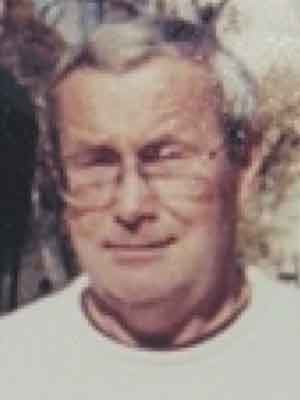 Richard W. “Dick” St. Pierre died September 17, 2019 in Tybee Island, GA. He was a Professor Emeritus at Penn State and upon retiring taught at Armstrong Atlantic State University in the Health Sciences Department. He received his BS degree in Health Education from the Ohio State University, a Masters in Public Health from UCLA and an EdD in Counseling Psychology from the University of North Carolina. He is survived by his wife, Suzanne, two children, Jeffrey and Renee St. Pierre, two step-children, Matthew and Jeffrey Shoemaker, brother, Ronald St. Pierre and four grandchildren, Julia Strakey, David, Molly and Mark Shoemaker.
Richard W. “Dick” St. Pierre died September 17, 2019 in Tybee Island, GA. He was a Professor Emeritus at Penn State and upon retiring taught at Armstrong Atlantic State University in the Health Sciences Department. He received his BS degree in Health Education from the Ohio State University, a Masters in Public Health from UCLA and an EdD in Counseling Psychology from the University of North Carolina. He is survived by his wife, Suzanne, two children, Jeffrey and Renee St. Pierre, two step-children, Matthew and Jeffrey Shoemaker, brother, Ronald St. Pierre and four grandchildren, Julia Strakey, David, Molly and Mark Shoemaker.
Dick’s contribution to the field of Health Education were myriad. Of note, he was a pioneer in distance education at Penn State and mentor to masters and doctoral students who became leaders across the US. As Chair of the Department of Health Education at Penn State, Dr. St. Pierre led the design and implementation of highly successful masters degree programs throughout the Commonwealth of Pennsylvania. His efforts in distance education met the outreach mission of Penn State and served a large number of students who by no other means, could benefit from a Penn State Masters in Health Education. Dick was the mentor for many masters and doctoral students who became successful health educators in both university and community settings. The thoughts of two of Dr. St. Pierres’ students are provided below.
Gerry Hyner, Professor of Health Education at Purdue University writes “Richard St. Pierre was my doctoral advisor at Penn State. Dr. St. Pierre had a calm manner. He was a careful listener, always informed and fully prepared. He was quick to inject humor into a conversation and deflect attention from himself to others. He enjoyed introducing his students to scholars at conferences, and to his friends and family. C.S. Lewis perfectly described Dick St. Pierre. ‘He will not be thinking about humility: he will not be thinking about himself at all.’ As a teacher, Dr. St. Pierre engaged every student in discussions. He was a model for how to structure a learning environment, how to posit a question to be researched, and how to contribute to the mission of an academic department. In time, his graduate students came to feel they had found their own way. That was his plan. He gave me the opportunity to teach classes and learn a discipline quite different from my undergraduate preparation. It’s clear to me now that he knew what I hoped to accomplish, and he knew how to help me get there. After more than 40 years in academe, I know who had the greatest influence on my career decisions. It would be an honor to be described as, one of Dr. St. Pierre’s students.”
And, Wayne Stellefson a Bachelor and Masters degree student of Dr. St. Pierre writes “Dr. Richard St. Pierre (‘Doc’) was my lifelong example of what a teacher and mentor should be. In class, Doc never lectured from notes in any of the many classes that I took with him. This was because he stressed knowing your subject matter better than anyone in your audience. That is, knowing the content in such a profound and deep way that lecture notes were unnecessary. More importantly, he emphasized making that subject matter ‘part’ of who you were as a professional. In one of my experiences as an I/T professional, I was asked to sell a product that I, myself, did not believe in. I went to Doc for advice. He simply told me to ‘walk away’. His ethical standards were among the highest that I ever came across during my 40-year career. Doc wanted his proteges to go where their ‘passion’ took them in order to be successful. While my passion led me outside the field of health education, Doc’s mentorship and friendship was always there for me to access. His special teaching methods and techniques inspired me to become a skilled influencer of cognitive and behavior change in the field of information technology. He taught me to demand excellence in my subject knowledge, but also show humility in presenting what I knew when communicating with others. His uniqueness was in how he made his students feel like his equal. He created a comfortable, yet challenging, learning environment for his students. He genuinely had the innate desire to help his students in any way that he possibly could. As the years passed, we traveled together, collaborated on journal articles together and simply shared life together. I tried for almost 40 years to make Doc proud of me, yet because of who he was and how he thought about his mentees, he was proud of me from the very beginning. He was my example; my hero; my lifelong model of what a teacher and mentor should be.”
On a personal note, Dick was my major professor, doctoral advisor and Chair of the Health Education Department at Penn State while I was a doctoral student and Assistant/Associate Professor in the department. His sage advice and guidance helped me both as a doctoral student and throughout my career in Health Education. For this, I will be forever grateful.
